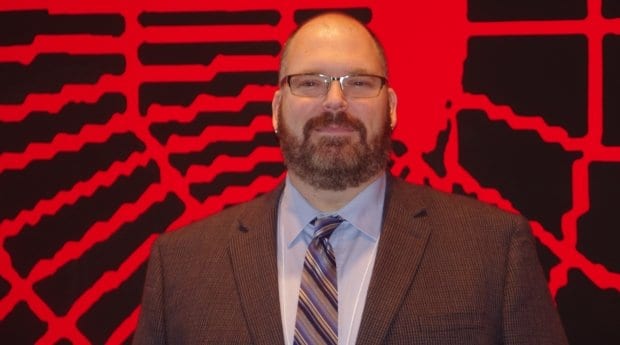Gay and bisexual men in the Fraser Valley yearn for gay-friendly healthcare services, as well as a supportive queer community closer to where they live, according to a recent study conducted by the Health Initiative for Men (HIM) in collaboration with the Fraser Health Authority.
“Gay men in the Valley are hungry to make social connections with each other in meaningful ways that get beyond just walking into a clinic,” says David Portesi, a volunteer at HIM and a former Fraser Health public-health director. Portesi presented the study results at the 10th annual Gay Men’s Health Summit on Oct 30.
A survey conducted in March and May drew 143 respondents from 14 communities throughout the Fraser Valley health region, which serves 1.6 million people from Burnaby to Hope. This was followed by three in-person community consultations in New Westminster, Surrey and Abbotsford that attracted 17 people.
“There is a desperate need for primary-care providers, and this is only magnified the more east you go — the more rural you go,” he says, noting that only 54 percent of the respondents were out to their physicians.
The survey and consultations spring from a partnership between HIM and Fraser Health. They aim to bring targeted health services to gay and bisexual men in an effort to reduce inequities in health outcomes, as well as the incidence of new STI and HIV infections. They also hope to increase HIV testing among gay and bisexual men by 50 percent.
Portesi notes that respondents expressed a desire for gay-specific services in their communities that mirror those offered at HIM’s Vancouver locations. “They were already saying, ‘Just come out to the Valley,” he says.
Respondents, however, said that services must be located in discreet, lower traffic areas with subdued signage and private waiting areas. “It was okay for these clinics to be located near other services,” he says. “They did not need to be in back alleys. They did not need to be hidden away somewhere. But they needed to be high-quality medical services that could be accessed as you would access any other medical clinic.”
Respondents also expressed a desire for advertising campaigns that take into account the comparatively low-key nature of gay life for many gay and bi men in the suburbs. “Many people know HIM for their provocative advertising campaigns. And those are incredibly successful, and we heard positive feedback around those sexy pictures, even out in the Valley, as you would expect,” Portesi explains. “But there was this idea that in addition to that, to augment that, have some lower-key outreach materials for the closeted gay or bi guy who really doesn’t want his mother, girlfriend or wife to find a condom pack in his pocket that has two gay men fucking on it. So having that lower-key, sort of less sexualized or differently sexualized imagery was important.”
The study recommends training for medical care providers so they are better equipped to work with out and closeted gay and bi men, as well as the development of a referral network that connects gay and bi men with gay-friendly physicians. This would help facilitate another recommendation: making HIV and STI testing a regular part of a routine checkup.
“Recent HIV and STI testing is somewhat alarming,” Portesi says. “So in Fraser East, 44 percent of our respondents said that they never had an HIV test or had an HIV test over a year ago, compared to 20 percent in the south and 11 percent in the north. So while we can come up with a lot of theories, likely some form of access to services is playing a role in there.”
HIM, in collaboration with Fraser Health, opened a new clinic in New Westminster in August and a new location in Surrey in October. “We’re getting gangbuster numbers already,” Portesi says. “We just started a yoga group in Surrey. This sort of basic pragmatic type of research is really helping us tailor our services as we move into the Valley and serve those under-served gay men that we know are there.”

 Why you can trust Xtra
Why you can trust Xtra


